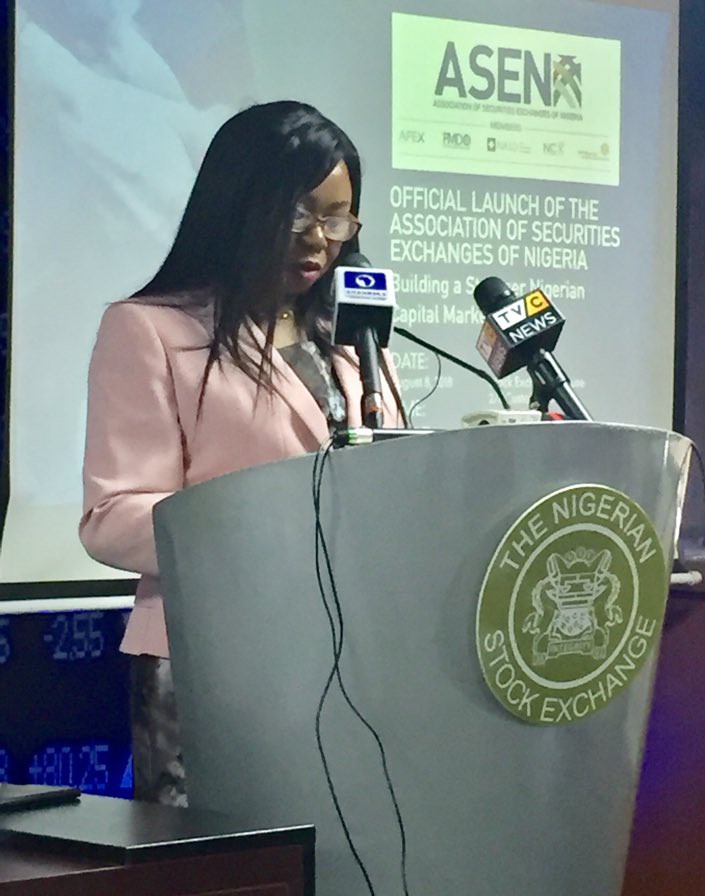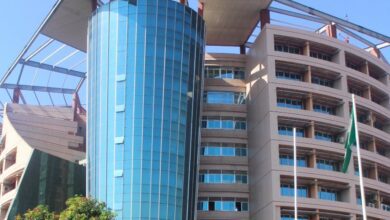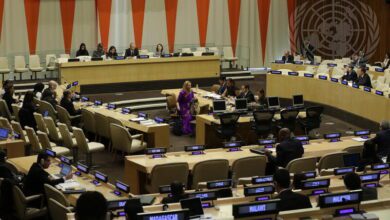COVID-19: A Challenge to Registrars in The Capital Market

Nigeria has come to grips with the human and economic consequences of the COVID-19 pandemic, governments – at both federal and state levels, hurriedly issued varying stay-at-home orders in efforts to contain the spread of the deadly corona virus, as federal and state budgets suddenly become unrealistic estimates in nation building for year 2021. The weak national economy is once more under pressure with COVID-19.
At the economic front, transactions in the nation’s capital market notably the Nigerian Stock Exchange continued, jolted by advancement in technology that made possible stock trading at remote locations.
Not less than seven (7) major annual general meetings took place in the month of April in the midst of the lockdown. These are commendable achievements for which kudos should be given to the regulators – the Central Bank of Nigerian and the Securities and Exchange Commission, operators, directors of quoted companies. This great achievement was never thought possible a decade ago. It lessens the negative economic effect of COVID-19 and ensured shareholders got paid their dividend declared within the intention of the provision in CAMA 2004, section 382 (4) on posting-out of dividend
This month April 2020, nine financial houses (9) paid a total of N220.5 billion to registrars on account of dividend declared. Of this sum N198.5 billion will be paid directly to shareholders of those companies while N22 billion is paid to the Federal Inland Revenue Services by way of withholding tax. The main concern is the doubt; many shareholders would receive the said N198.5 billion in compliance with provisions of CAMA 2004 section 382 (4). A greater proportion of the sum will end up as unclaimed dividend – no thanks to the poor operations of the registrars charged with the role of paying the shareholder.
The registrars have dimmed the shine out of the remarkable achievement earlier enumerated. They further compounded the COVID-19 induced pain shareholders are in. Unfortunately, no registrar issued a business continuity plan, as if no AGM can take place or any remote trading in shares possible. To the registrars all businesses must wait while they observe the stay at home order.
With COVID- 19 pandemic, the level of unclaimed dividend will worsen by the amount recently paid by quoted companies as dividend this period of lockdown. In December 2019, the registrars, on the order of the Securities and Exchange Commission returned to various public quoted companies N150 billion in unpaid dividends that have stayed 15 months or more with the registrars.
Registrars must shift from their hardened stance on e-dividend execution. Currently registrars require shareholders to complete a Dividend Mandate Form giving personal information of name, surface and electronic contact address, bank detail including BVN and any national means of identification. Thereafter, he or she affixes his or her passport picture and have his/ bankers endorsed the Form and passport.
The Companies and Allied Matters Act is the primary statute regulating operations of companies including the declaration and payment of dividend to shareholders. The Rules and Regulation under the Investment and Securities Acts stipulated that dividend approved at the AGM is immediately paid to the shareholders and evidence of such remittance filed with the Securities and Exchange Commission
The failing of registrars in the handling of dividend payment will continue to negatively impact progress in the capital market. There is a need for urgent changes to be done in registrars’ services. Before I proffer suggestions, let us consider the following fact: –
The Securities and Exchange Commission (the Commission) in December 2019, ordered registrars to return N150 billion in unclaimed dividend that stayed 15 or more months to the respective quoted companies. This means that in every 3-4 months’ periods, the registrars have in free and un-marketed funds in excess of N150 billion in their bank accounts in the name of dividend payable to shareholders. What therefore should motivate them to hasten any payment process?
As the registrars returned the N150 billion to the companies, another set of free-funds is paid to them in current year dividend to be treated in similar manner as the funds before it.
To address the issue of intractable unclaimed dividend, this write up proffers the following changes were accepted, will bring positive change in operations and administration of dividend payment to meet the interest of shareholders in the capital market: –
E-Dividend Mandate Form and the Share Transfer form should be merged into one single document. The Share Transfer Form is the oldest Statutory Form in the capital market and is stated as a necessary document in matters of transfer of shares, under the Companies and Allied Matters Act and in respective Memorandum and Articles of Association of companies.
Going forward, the information in a Share Transfer Form should be updated to include the bank details of the new/existing shareholder and processed to the Registrars for record keeping. The e-dividend Mandate Form be then cancelled or done away with.
The Securities and Exchange Commission should open the dividend paying function to the like of the Central Securities Clearing System Plc.
The audited annual Financial Statements to include by way of notes to the accounts an Analysis of movement in Unclaimed Dividend.
There is a need for registrars to abolish the minimum age of 6 months for an account to qualify to receive any dividend due to the shareholder. Which is most important, the principal sum which the shareholder paid through the bank account for the shares or the dividend he is to be paid into the same account
Registrars that handle and benefits from public funds (unclaimed dividend) be made to publish their annual audited financial statements.
The CAMA Section 382 requires companies to send a list of unclaimed dividend to persons entitled to receive notice of next annual general meetings. The practices these years where companies make passing statements for shareholders to contact the registrars vide some electronic contact forms worsen matters. The intention desired by compliance of section 382 CAMA 382 is lost.
The Securities and Exchange need to revise Rule 204 of its Rules and Regulation. Rule 204 (1), (5) and (5) give the registrars un-necessary days to hold on to dividend payment in this times of online banking. A rule that is outdated if not revised makes easy the current registrars inertia.
The suggestions, if implemented, will be beneficial to shareholders and the capital market in general.
Dodo, an Independent Financial & Investment Analyst, wrote in this piece from Masaka, Nasarawa state. He can be reached via: [email protected]






